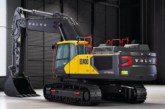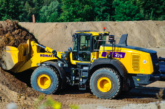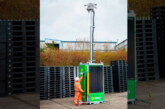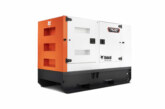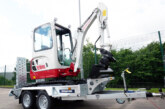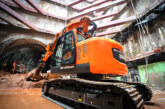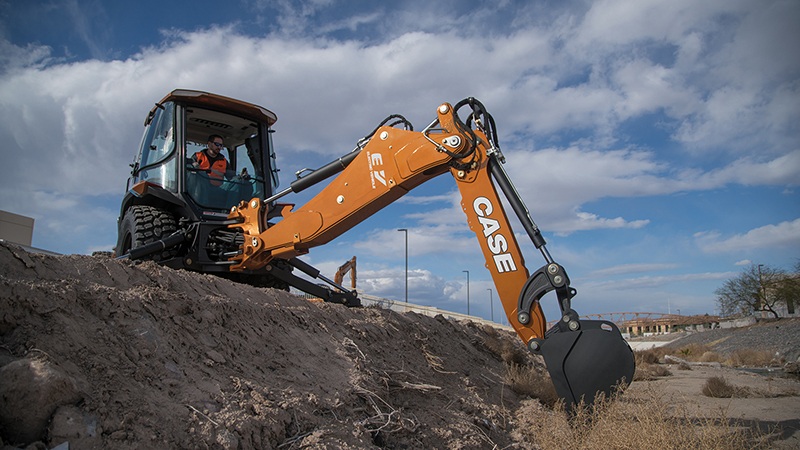
At CONEXPO 2020, CASE Construction Equipment launched the construction industry’s first fully electric backhoe loader.
The 580 EV (Electric Vehicle) concept, dubbed Project Zeus, offers the same power and performance as a diesel-powered CASE backhoe loader, but with zero emissions and considerably reduced operating costs. Two machines have already been sold to US-based utilities companies, with the concept planned to remain exclusive to the North American market.
“Since designing the first fully factory-integrated backhoe loader in 1957, CASE has remained at the pinnacle of backhoe innovation,” said Egidio Galano, Compact Line Product Manager, CASE Construction Equipment Europe. “The 580 EV both continues this evolution and represents a significant step forward for CASE’s wider commitment to a more sustainable future for construction equipment. By producing this concept machine, we are bringing the viability of electrified large compact equipment ever closer to the North American market.”
The 580 EV is powered by a 480-volt, 90-kilowatt hour lithium-ion battery pack. This can be charged through any 220-volt/three-phase connection to give around eight hours of run-time depending on the application. As this battery powers the drivetrain and hydraulic motors separately, breakout force is the same as a diesel-powered machine and overall performance is improved during simultaneous loader and drivetrain operation.
While also drastically cutting a business’ carbon footprint, it is estimated that that 580 EV could save fleets up to 90 per cent in annual vehicle operating costs. This is due to either reduced or eliminated spend on diesel, engine oil, diesel exhaust fluid and long-term engine maintenance. To further support this, the 580 EV comes with CASE SiteWatch as standard.
The 580 EV represents CASE’s first official entry into the electric construction equipment market. In partnership with its sister company FPT Industrial, CASE will continue to look for electrification and alternative fuels options that make a sustainable construction equipment future possible.

